It’s Communications Policy, Stupid
Our current "crisis of media" is a policy battle that Congress, if pressed by voters, can fix. FCC Chairman Ajit Pai. (Pablo Martinez Monsivais / AP)
FCC Chairman Ajit Pai. (Pablo Martinez Monsivais / AP)
E. J. Dionne, Norman Ornstein and Thomas Mann have come out with a new book, “One Nation After Trump.” It is a worthy follow-up to “It’s Even Worse Than It Looks,” but once again, like the three blind mice, they fail to appreciate the importance of communications policy. While the book spends a few pages going over what the authors call “the crisis of media” and even notes a report I co-authored about the 10-to-one dominance of right-wing talk on commercial radio, the book fails to mention the role of the Federal Communications Commission or the media policymakers in Congress in helping to set the stage of our current (add your own expletive) situation.
Rush Limbaugh, Fox News, Sinclair Broadcasting and your ever-expanding cable and internet bills are the direct result of bad communications policy. Democrats share some of the blame, but no one should be fooled that the main culprit and biggest winner during this crisis of media is, of course, the party led by a reality TV star.
As the Trump FCC notes in its current proposed rules to allow even greater local media consolidation, the Reagan FCC really got the ball rolling. “In 1985, on reconsideration of its decision to relax the limit from seven to twelve stations, the Commission found that relaxation would serve the public interest. …”
Right.
The expansion of media ownership opportunities for wealthy speculators was consistent with the destruction of all the rules that made local broadcasters accountable to the local community, such as ascertainments and the Fairness Doctrine.
Dionne, Ornstein and Mann (like most liberals) seem completely oblivious to the fact that the radio conglomerate—iHeartRadio (formerly known as Clear Channel) with the most stations (once over 1,200 and now over 850)—also owns and controls Premiere Radio, which owns and distributes Rush Limbaugh, Sean Hannity and other right-wing talkers. Should we really a wonder why conservative talk is so dominant?
And long before we became obsessed with the Russians sabotaging our democracy, the Fox from Australia—Rupert Murdoch—was in our chicken coop stirring up the masses with reports on the demise of Christmas and the tragic loss of aging white male privilege.
But don’t worry, we are told. The magical mystery tour called the internet will solve whatever media problems we have, according to (the Republican) FCC Chairman Ajit Pai, as he wonders, with all the digital content out there, whether FCC oversight of the media is even necessary.
He has proposed:
● Allowing common ownership of a newspaper and a broadcast station in the same market.
● Allowing common ownership of two of the top four TV stations in the same market.
● Allowing one owner to control sales and advertising in multiple stations in the same market.
● Allowing a station owner to control a local broadcast station from outside of the market.
● And, to support the right-wing broadcaster Sinclair, let’s pretend there is a real difference between UHF and VHF stations, even in this age of digital broadcasting.
To top it off, Pai has forced a party-line vote to repeal the only set of rules protecting access to digital content—“net neutrality.” He justifies this repeal, in part, by advancing the false right-wing narrative that there was a bipartisan deal to change the classification of advanced telecommunications service (also known as broadband, or the commercial internet) from a Title II telecommunications service to a Title I information service.
It was another one-sided Republican FCC vote that made this change in 2002 (the George W. Bush/Michael Powell FCC). This word change limited the FCC’s authority over the cable and telecom companies (also known as Internet Service Providers), allowing them to hustle consumers and the companies that give us the content we want (Netflix and Google).
So, what’s next?
Perhaps the 3rd Circuit Court will step in once again to stop the FCC from destroying what few rules are left to protect local broadcasting, and maybe Netflix will haul Pai to court to keep from getting squeezed by the Internet Service Providers.
But what we really need to get through our heads is that our communications crisis, whether about local broadcasting or the internet, is the result of policy battles—not technology or the markets. The winner of these policy battles is determined by whom we vote for and whether we make our policy preferences known to them.
Yes, elections have consequences for the communications capabilities of citizens. Congress (that means your local representative up for reelection in 2018), if pressed by voters, can fix all this.
Mark Lloyd is a clinical professor of communication at the University of Southern California’s Annenberg School for Communication and Journalism. He is a lawyer, a public policy advocate and an Emmy Award-winning journalist, as well as the former associate general counsel at the Federal Communications Commission. He is co-editor of “The Communication Crisis in America, And How to Fix It.”
Your support matters…Independent journalism is under threat and overshadowed by heavily funded mainstream media.
You can help level the playing field. Become a member.
Your tax-deductible contribution keeps us digging beneath the headlines to give you thought-provoking, investigative reporting and analysis that unearths what's really happening- without compromise.
Give today to support our courageous, independent journalists.
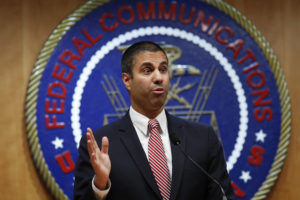
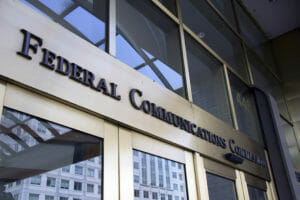
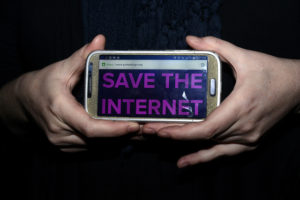
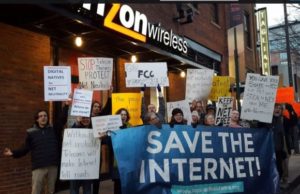
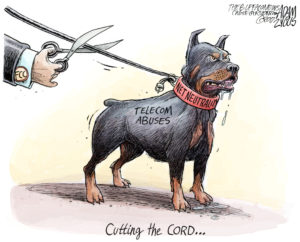
You need to be a supporter to comment.
There are currently no responses to this article.
Be the first to respond.